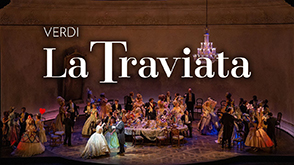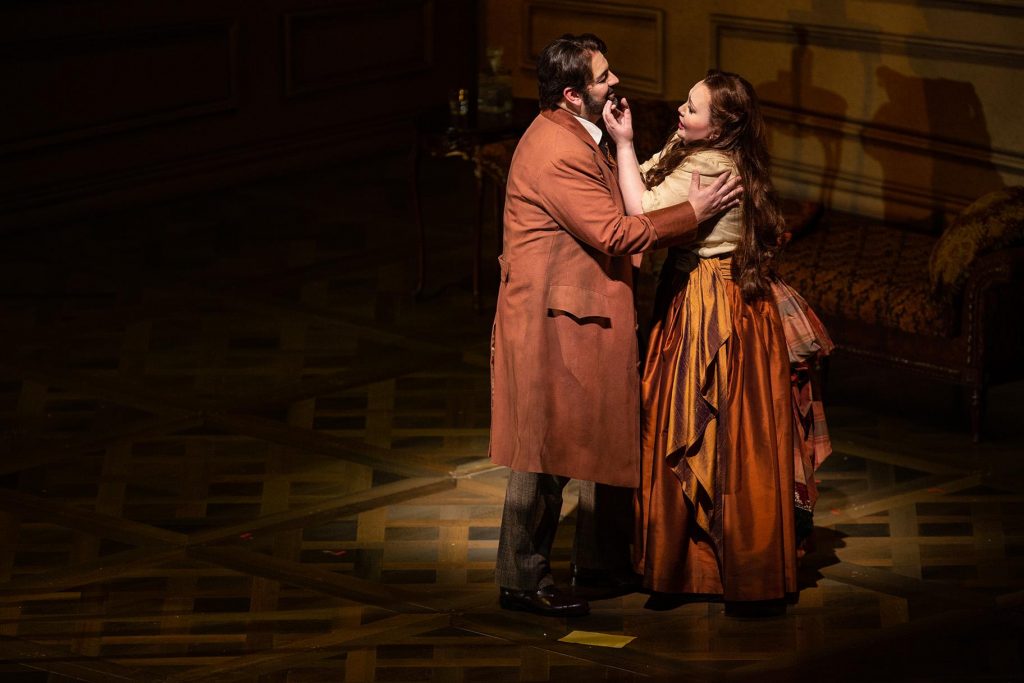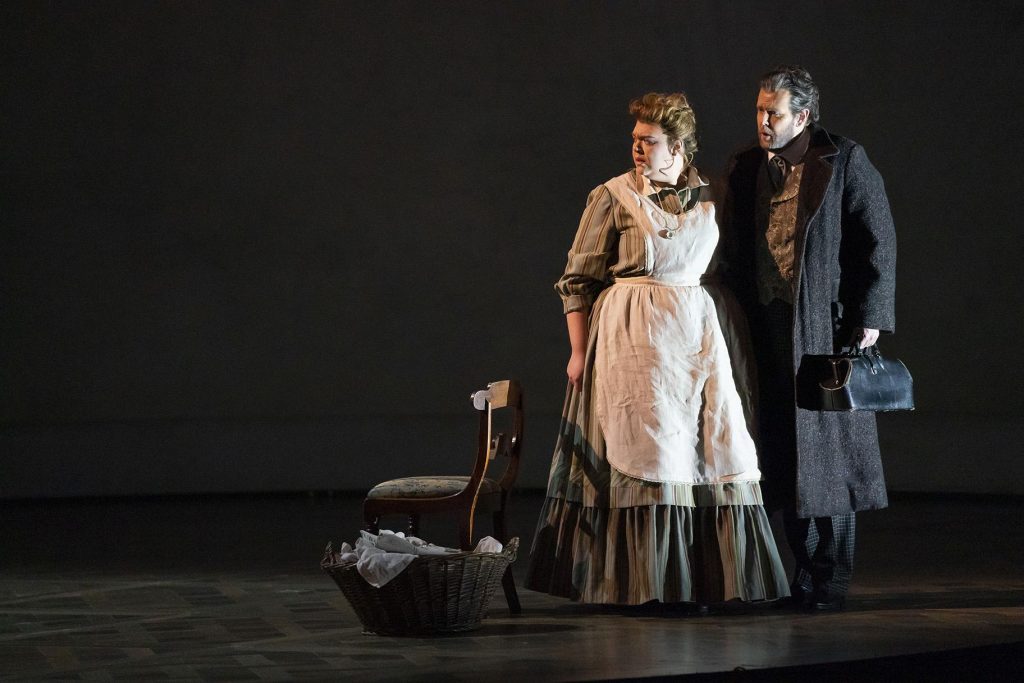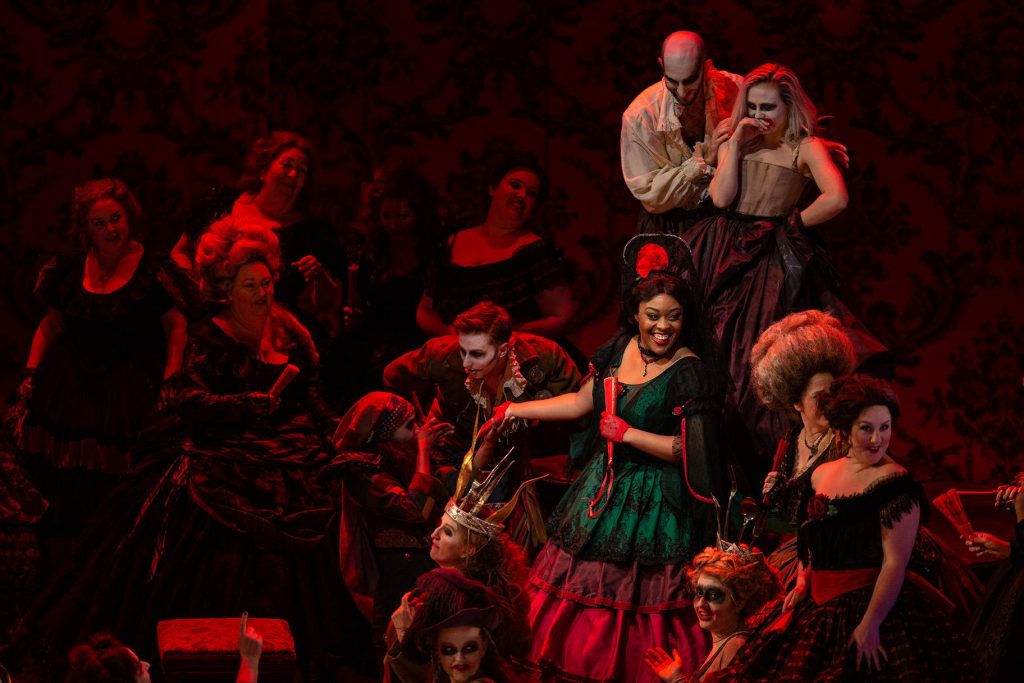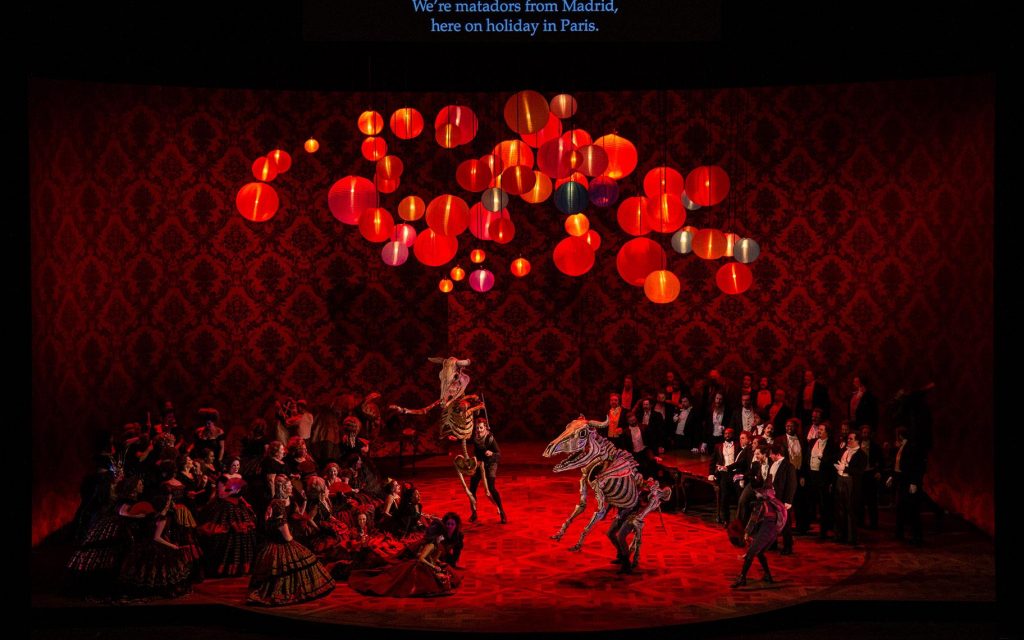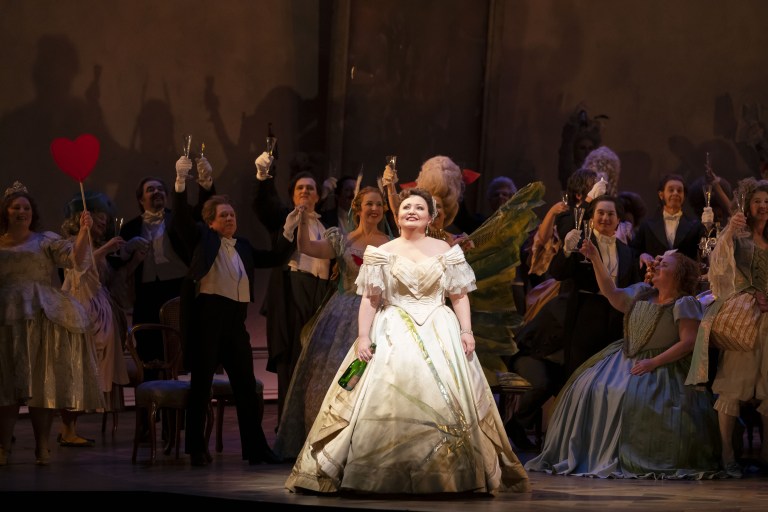MISSING A FEW NOTES
It’s quite a treat to have two Verdi operas in one season, especially two of the composer’s best. Yet neither of these similarly named operas gets a new production. Whereas Il Trovatore had first been performed during the 2014/15 season, so La Traviata was performed in 2013/14. I did not see this production the first time around, but I can say that it seems to have aged well enough, especially since director Arin Arbus seems to have gone for a fairly traditional interpretation. The only oddity is the Tim Burton-esque gypsy troupe in Act II. Russian soprano Albina Shagimuratova’s somewhat slipshod performance as the title character, however, was rather disappointing. If she manages to perfect her singing in future performances, this will be a beautiful production indeed.
Based on the novel/play La Dame aux Camélias by Alexandre Dumas (not to be confused with his father of the same name and author of The Count of Monte Cristo and The Three Musketeers), La Traviata is a tragic love story in three acts. The first introduces the opera’s two principal characters: the Parisian courtesan Violetta Valery and her lover Alfredo Germont. At the party that Violetta throws to celebrate her return to health, Germont declares his love for her. The second act finds the two living together in a country house outside Paris until Alfredo’s father Giorgio arrives and convinces Violetta that she must leave his son. Violetta dutifully abandons Alfredo and returns to Paris. In the final act, the two lovers are reconciled on Violetta’s deathbed. It is a poignant story that perhaps expresses something of the composer’s own fraught love life, since Verdi lived with the soprano Giuseppina Strepponi for more than a decade before they finally married.
Shagimuratova, who most recently charmed Lyric audiences with her sensitive portrayals of Donizetti heroines, imbues the role of Violetta with a lightness of touch that is refreshing and delightfully different from the usual interpretations. Unfortunately, she both misses notes altogether in her climatic Act I cadenza and sings the wrong ones at the end of Act III. They are easy mistakes to miss, however, since the former comes during an astounding burst of coloratura, while the latter is obscured by other voices amidst a dramatic death scene. Such mishaps do not completely detract from what is an otherwise impressive performance.
Serbian baritone Željko LuÄić, last seen in the title role of La Traviata in 2015/16, plays Giorgio Germont with extraordinary humanity, which is difficult to achieve in a character that can easily seem villainous. His lyrical and lilting Act II duet “Ah! Dite alla giovine” easily keeps that lengthy scene from becoming dull. Also remarkable is Italian tenor Giorgio Berrugi, making his Lyric debut as Alfredo Germont. Not only does he have the right kind of voice for the part, but he cuts a dashing figure in this incredibly romantic role.
Arbus stages with a lightness of touch that allows the drama to speak for itself without the introduction of extra characters or unnecessary props. During the prelude, for example, the action begins behind a screen with Violetta’s maidservant Annina dressing Violetta in front of a mirror. Suddenly, the screen disappears and the stage is lit, revealing a magnificent salon crowded with partygoers; it is a smooth and masterful transition. At least one of Riccardo Hernandez’s set pieces is familiar: the brightly colored lamps from the Act II gypsy scene look just like those used in a similar scene from Carmen in 2016/17. Cait O’Connor’s costume and puppet designs are mostly traditional and evocative, while Christopher Ash’s projections allow an otherwise opaque set to reveal people in the background. A missed opportunity, however, was not having projections to portray an offstage Alfredo in Act I.
La Traviata has some of Verdi’s most memorable music, including some of the most stunning coloratura ever written. Shagimuratova has proved from past performances that she is capable of singing this repertoire, but she was not singing her best on opening night. Assuming that she pulls herself together, this production will be well worth watching, even for those who saw it earlier.
photos by Todd Rosenberg
La Traviata
Lyric Opera of Chicago
Civic Opera House, 20 N. Wacker Drive
ends on March 22, 2019
for tickets, call 312.827.5600 or visit Lyric Opera
for more shows, visit Theatre in Chicago
